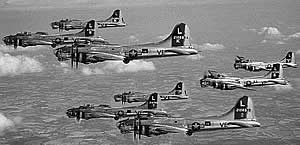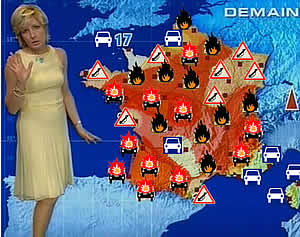
ISIS recruiter dies in airstrike
Nineveh (IraqiNews.com) A senior Islamic State leader responsible for recruiting foreign members was killed in an Iraqi airstrike in western Mosul, a security official was quoted as saying.
The strike, which was carried out three days ago, targeted al-Mazlomin village at the IS-held strategic town of Tal Afar, and killed Abbas Suleiman Ismail AlHaider, aka Abu Aesha, along with four other Azerbaijani nationals, according to a security source.
Iraqi government forces have approached the final districts in eastern Mosul where Islamic State militants locate. The liberation of that region after three months of operations would be the most remarkable victory over the extremist group since a campaign was launched to retake the city in mid October.
After retaking eastern Mosul, Iraqi generals hope to move immediately beyond the Tigris River towards Islamic State strongholds in the west, where military observers predict a tougher battle due to the higher density of the population.
IS militants have reportedly withdrew from the east to the west, with many reportedly killed upon crossing Tigris River to the other side. Many group leaders have been killed, according to news reports and military statements by Iraqi and international coalition commanders. Counter-Terrorism Forces said last week they had killed 3300 militants since the start of operations.
The conflict in Mosul has displaced at least 181.000 civilians, according to the Iraqi government, and the United Nations had said the conflict would threaten to displacement at least one million.
Iraq executes 31 for Speicher massacre
Baghdad (IraqiNews.com) Iraqi judicial authorities executed on Monday 31 convicts linked to a massacre carried out by the Islamic State that left 1700 Iraqi air force cadets dead in 2014.
Anadolu Agency quoted Mahmoud Khalaf, the mayor of Samarra, Salahuddin, as saying that some of the convicts belonged to his city, while the rest were from other areas of the province. He said the dead bodies were transferred to the city’s public hospital preparing to hand them over to their relatives.
The massacre occurred at the Speicher air base in Tikrit, the capital of Salahuddin, when Islamic State militants executed 1700 Shia students at the air force. The victims were either shot at or beheaded before their corpses were dumped into the Tigris River, which cuts through Tikrit. The incident was one instance among many that ignited public discontent with the performance of former prime minister Nouri Al-Maliki.
On Sunday, security sources were quoted as saying that 89 bodies of the massacre’s victims were found at a mass grave in Tikrit. They were to be exhumed, subjected to a DNA test and handed over to their families, according to news reports.
Since its emergence in 2014, taking over large areas of Iraq to proclaim an “Islamic Caliphate”, IS militants have proudly posted videos of heinous executions it carried out against security personnel and civilians at areas under its control for multiple charges.
ISIS executes 2 in Raqqa
[ARA News] Raqqa – Islamic State’s (ISIS) jihadists on Monday executed two soldiers from the Syrian Democratic Forces (SDF) who have been captured by the group during clashes in Raqqa countryside.
ISIS had taken two SDF fighters as captives subsequent to clashes west of Raqqa last week.
“The two SDF soldiers were publicly beheaded in the Tabqa town,” local media activist Khalid al-Husni told ARA News.
The radical group has executed the soldiers on charges of “opposing Allah’s Sharia and fighting the Caliphate’s rule”.
This comes amid continued military operations by the Kurdish-led SDF troops against ISIS in the vicinity of Raqqa.
The SDF announced that it has captured over 2500 km2 in western Raqqa Governorate as part of the second phase of the US-backed Euphrates Wrath Operation. The polyethnic alliance also confirmed that they had cleared 196 villages and dozens of farms.
During the first phase of Euphrates Wrath, which began on November 6, the SDF liberated roughly 560 km² in northern Raqqa. “Thus, since the beginning of the battle for Raqqa, 3200 square kilometers have been cleared, including 236 villages.”
The SDF launched the second phase of the Operation Euphrates Wrath with the objective of securing Raqqa’s western countryside and Tabqa Dam, which bridges the Euphrates River. The first phase of the operation focused on securing the banks of the Balikh River.
The SDF confirmed the that they had eliminated 620 ISIS militants during the course of the campaign, captured 18 others and destroyed “over 40 car bombs.” In addition, SDF troops seized “a great deal of ammunition and weapons,” as well as “a number of ISIS vehicles.”
The long-term objective of Euphrates Wrath remains the elimination of the Islamic State in its de facto capital –Raqqa city.
Civilians' presence hinders ISIS' use of bombs
[Asharq Al-Awsat] Mosul- Iraqi forces used to facing deserted, explosives-rigged streets and booby-trapped buildings have not encountered as many bombs planted by jihadists in Mosul as they did in earlier battles against them.
ISIS has no qualms about killing civilians, but the presence of a large number of residents in Iraq’s second city discouraged the jihadists from extensively sowing it with explosives, officers say.
While previous urban battlefields in Iraq’s war against ISIS were largely depopulated by the time the country’s forces moved in, Mosul still sheltered a million-plus people when the offensive to retake it was launched three months ago.
If explosives had been widely planted by the jihadists ahead of the battle, they would have been at risk of being triggered before Iraqi forces arrived.
So while the systematic mining of roads and rigging of buildings with bombs has arguably been ISIS’ signature defense system against Iraqi forces, in Mosul, the jihadists had to change tack.
Iraqi forces have seen less booby-trapping in Mosul than in Anbar and Salaheddin provinces, where earlier key battles against ISIS took place, said Staff Lieutenant General Abdulghani al-Assadi, a top commander in the elite Counter-Terrorism Service.
“The reason is the families remained in their neighborhoods, in their houses,” Assadi told Agence France Presse.
Some residents of the city have ventured out of their homes just moments after the fighting died down, and in recaptured areas of eastern Mosul, stores are reopening, goods are displayed in front of shops, civilian cars and pedestrians move along some streets and children play outside.
Staff Lieutenant General Sami al-Aridhi, another senior CTS commander, said there was “no comparison” between the number of bombs planted in Mosul and those in Anbar province, where Iraqi forces retook the cities of Ramadi and Fallujah from ISIS.
There are fewer because “here in Mosul, the residents didn’t leave,” Aridhi said.
“Now, when we advance into any neighborhood, we don’t think that the street is booby-trapped; our vehicles move normally.”
ISIS needed civilians in Mosul to maintain at least the veneer of a functioning “state,” and extensively planting bombs that could be triggered by residents would have both reduced their defensive utility and risked stoking popular anger against the jihadists.
This does not mean that ISIS has completely forgone the use of bombs in Mosul.
It is a “change of strategy” for ISIS, said Captain Qaisar Fawzi, an officer in an Iraqi army engineering battalion.
“They did not rely on roadside bombs, they relied on explosives-rigged vehicles,” he added.
Vehicles rigged with bombs “are indeed the enemy’s weapon of choice in the battle of Mosul,” said Colonel John Dorrian, spokesman for the U.S.-led anti-ISIS coalition.
But, according to Assadi, in “important areas, the residents were displaced… and (ISIS) started to booby-trap them.”
Lise Grande, the U.N.’s humanitarian coordinator for Iraq, said that bombs planted by ISIS have still posed a threat to civilians.
“People who are trying to flee Mosul… have stepped on booby-traps and IEDs (improvised explosive devices),” killing some and wounding others, Grande said.
And “based on experiences from other occupied areas, we’re worried that IEDs have been planted by (ISIS) in schools, hospitals and other public buildings,” she said.
The large numbers of civilians in Mosul have also hampered Iraqi offensive operations.
Aridhi said that while security forces could previously strike ISIS from a distance, “here, we are not able to use any fire, because citizens are present.”
“We are delayed because people are present,” he said.
Assadi agreed, saying that there is “little booby-trapping, few bombs, but (many) citizens whom we must protect.”
Iraqi forces do however still use heavy weapons in Mosul: helicopters and warplanes have frequently carried out strikes inside the city, and artillery as well as large unguided rockets are fired inside it.
The combination of civilians staying in the city and the lower number of bombs planted inside it means life has returned to some recaptured areas in Mosul far quicker than in other cities retaken from ISIS.
Parts of Ramadi and Fallujah are still uninhabitable, but while some houses and buildings in Mosul have been wrecked and streets are cratered by bombs and strewn with rubble, other places have escaped largely unharmed.
“The booby-trapping began after the start of the Mosul operation,” said resident Raed Mohammed, speaking to AFP at a roundabout in the city’s east where street vendors were out selling goods, but which was still overlooked by an ISIS billboard and marred by damaged buildings.
People were going about their daily lives before that and, had the jihadists extensively planted bombs, “it’s likely that they themselves would have been exposed to explosions.” |
 ...hereditary Iraqi holy man and leader of a political movement in Iraq. He had his hereditary rival al-Khoei assassinated shortly after the holy rival's appearance out of exile in 2003. Formerly an Iranian catspaw, lately he's gagged over some of their more outlandish antics, then went back to catspawry...
...hereditary Iraqi holy man and leader of a political movement in Iraq. He had his hereditary rival al-Khoei assassinated shortly after the holy rival's appearance out of exile in 2003. Formerly an Iranian catspaw, lately he's gagged over some of their more outlandish antics, then went back to catspawry...

 Former Iraqi premier Nouri Al Maliki on Tuesday dismissed as "worthless" a parliamentary report blaming him and others for the militant takeover of second city Mosul last year.
Former Iraqi premier Nouri Al Maliki on Tuesday dismissed as "worthless" a parliamentary report blaming him and others for the militant takeover of second city Mosul last year. Iraq's Prime Minister Nouri Al Maliki has called upon his country's armed forces to help Kurdish forces battle militant offensive in northern Iraq that has caused tens of thousands of people from the minority Yazidi community to flee their homes.
Iraq's Prime Minister Nouri Al Maliki has called upon his country's armed forces to help Kurdish forces battle militant offensive in northern Iraq that has caused tens of thousands of people from the minority Yazidi community to flee their homes. Another car bomb killed four and wounded 12 in a commercial street in Baghdad's Hurriyah neighbourhood, police said.
Another car bomb killed four and wounded 12 in a commercial street in Baghdad's Hurriyah neighbourhood, police said.